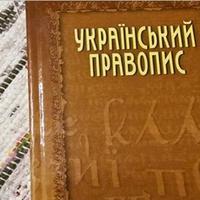Уживання І, И на початку слова
Verwenden Sie I, I am Anfang des Wortes
Use I, I at the beginning of the word
El uso de I, I al principio de una palabra
Utilisation de И, И au début d'un mot
Usa I, I all'inizio della parola
単語の先頭での И、И の使用
Het gebruik van I, I aan het begin van een woord
Użycie I, I na początku słowa
O uso de I, I no início de uma palavra
Употребление I, И в начале слова
Använd jag, jag i början av ordet
Bir kelimenin başında I, I kullanımı
На початку слова звичайно пишемо і відповідно до вимови: Іва́н,
Am Anfang des Wortes schreiben wir normalerweise nach der Aussprache: Ivan,
At the beginning of the word we usually write according to the pronunciation: Ivan,
Au début du mot, on écrit généralement selon la prononciation : Ива́н,
I början av ordet brukar vi skriva enligt uttalet: Ivan,
і́грашка, і́дол, і́кати (‘вимовляти і замість и'), іко́на, іменува́ти, ім'я́, інди́к,
Spielzeug, Idol, icati ('aussprechen und anstelle von i'), Ikone, Name, Name, Truthahn,
toy, idol, hiccup ('pronounce and instead of and'), icon, name, name, turkey,
jouet, idole, ikat ("prononcez et au lieu de je"), icône, nom, nom, dinde,
おもちゃ、アイドル、イカット (「i の代わりに and と発音」)、アイコン、名前、名前、七面鳥、
leksak, idol, hicka ('uttala och istället för och'), ikon, namn, namn, kalkon,
і́ноді, іржа́, існува́ти, і́стина, іти́.
manchmal, Rost, existieren, Wahrheit, gehen.
sometimes, rust, exist, truth, go.
時々、さび、存在、真実、行く。
ibland, rosta, existera, sanning, gå.
Деякі слова мають варіанти з голосним и: і́рій і и́рій, і́род і и́род (‘дуже
Einige Wörter haben Varianten mit dem Vokal i: iriy und iriy, irod und irod ('sehr
Some words have variants with the vowel i: iriy and iriy, irod and irod ('very
Certains mots ont des variantes avec la voyelle i : и́рий et и́рий, ирод et ирод ('très
一部の単語には、母音 i を含む異形があります: и́рий と и́рий、
Vissa ord har varianter med vokalen i: iriy och iriy, irod och irod ('mycket
жорстока людина').
eine grausame Person").
cruel man ').
personne cruelle').
残酷な人」)。
И пишемо на початку окремих вигуків (ич!
Und wir schreiben am Anfang von bestimmten Interjektionen (ich!
And we write at the beginning of some exclamations (ich!
そして、個々の感嘆符の最初に書きます(ich!
), часток (ич який хитрий),
), Partikel (wie schlau),
), particles (ich which is cunning),
)、粒子(なんて狡猾)、
дієслова и́кати (‘вимовляти и замість і') та похідного від нього іменника
das Verb икать ("aussprechen und anstelle von i") und sein abgeleitetes Substantiv
the verb ikati ('to pronounce i instead of i') and the noun derived from it
動詞 и́кать (「i の代わりに i を発音する」) とそれから派生した名詞
и́кання.
hiccups.
И на початку слова вживаємо в деяких загальних і власних назвах, що
Und am Anfang verwenden wir das Wort in einigen allgemeinen und Eigennamen, die
And at the beginning of the word we use in some common and proper names that
Et au début du mot, nous utilisons dans certains noms communs et propres qui
そして、単語の冒頭で、私たちがいくつかの一般的で固有の名前で使用する
походять із тюркських та інших мов, відповідно до їх вимови в цих мовах:
originate from Turkic and other languages, according to their pronunciation in these languages:
viennent du turc et d'autres langues, selon leur prononciation dans ces langues :
これらの言語での発音によると、トルコ語やその他の言語に由来します。
ийбе́н, ир, Ич-оба́, Кім Чен Ин.
iyben, ir, Ich-oba, Kim Jong Un.
iyben, ir, Ich-oba, Kim Jong Un.
iyben, ir, Ich-oba, Kim Jong-un.
iyben、ir、Ich-oba、金正恩。

